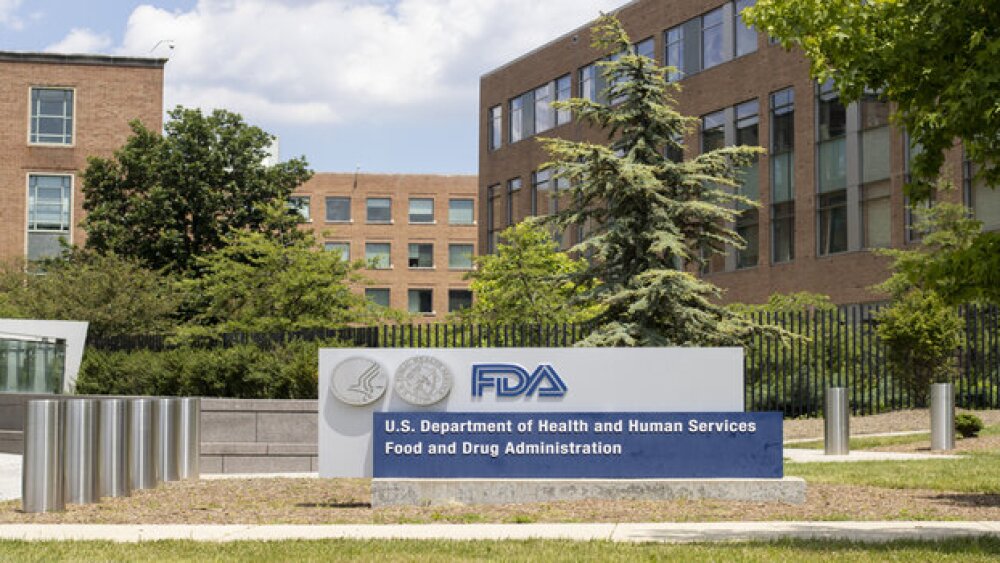Though it received backing from the Pulmonary-Allergy Drugs Advisory Committee in May, the FDA on Tuesday rejected ARS Pharmaceuticals’ neffy as a nasal spray for allergic reactions.
Pictured: FDA signage outside its office in Maryland/iStock, hapabapa
The FDA on Tuesday turned down ARS Pharmaceuticals’ application for its epinephrine nasal spray neffy for the treatment of type I allergic reactions in adults and children weighing at least 30 kg.
In its Complete Response Letter (CRL), the regulator asked ARS to conduct an additional pharmacokinetic and pharmacodynamic study that evaluates repeated neffy doses compared with repeat administrations of an epinephrine injection in participants with allergen-induced allergic rhinitis.
According to the company’s announcement on Tuesday, the FDA is making this request despite aligning with ARS in August 2023 regarding the need to conduct this study as a post-marketing requirement. The regulator and the company have also already settled on the final physician’s labeling for the product.
In May 2023, the FDA’s Pulmonary-Allergy Drugs Advisory Committee (PADAC) voted 16-6 that neffy’s risk-benefit profile was favorable in adults. The panel of external experts was split 17–5 in favor of using neffy in children aged 18 years and younger.
While the FDA is not required to follow the advice of its advisory committees, ARS CEO Richard Lowenthal said that the company is still “very surprised” by the regulator’s decision, particularly “the late requirement at this time to change the repeat-dose study from a post-marketing requirement … to a pre-approval requirement.”
ARS said it plans to file a Formal Dispute Resolution Request to appeal the FDA’s CRL.
Nevertheless, since the company had previously agreed to conduct a post-marketing repeat-dose study, it expects to be able to resubmit neffy’s drug application in the first half of 2024 and anticipates an FDA verdict in the latter half of next year.
Aside from the additional repeat-dose study, Tuesday’s CRL also asked for more data regarding nitrosamine impurities in accordance with draft testing guidelines. The company does not expect this new requirement to be a “rate-limiting step” for its resubmission.
ARS backed neffy’s regulatory bid with data from four primary registrational studies in which a 2-mg neffy dose demonstrated a pharmacokinetic profile that fell within the range of approved injectable epinephrine formulations.
The FDA accepted the New Drug Application in October 2022 but the regulator extended its review period by three months in June 2023. At the time, the agency did not ask for additional pre-marketing studies.
During the May 2023 PADAC meeting, FDA reviewers flagged the lack of clinical data supporting neffy’s efficacy and safety. Relying on pharmacokinetic and pharmacodynamic data could pose uncertainty concerns because such data for injected epinephrine products are scarce to begin with, they said. Moreover, the different routes of administration might also translate to differences in absorption, further making comparisons with injectable products fraught, according to the agency.
If ultimately approved, neffy would be the first needle-free epinephrine treatment for severe allergic reactions in the U.S., Lowenthal said in a statement Tuesday. He added that ARS believes in the value neffy “can provide for patients, families and caregivers living daily with severe allergic reactions.”
Tristan Manalac is an independent science writer based in Metro Manila, Philippines. He can be reached at tristan@tristanmanalac.com or tristan.manalac@biospace.com.






